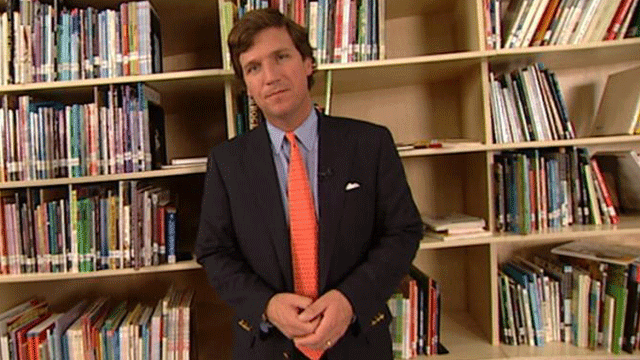
Editor's note: Next week, the Texas State Board of Education begins final debate on proposed new social-studies-curriculum standards for Texas public schools. In March, Texas board members voted 10-5 to reverse what many on the board see as liberal bias in the classroom and in textbooks. Critics charge the interim changes whitewash American history and downplay the role of African-Americans, Latinos and women. But what happens in Texas doesn't stay in Texas. The conclusion of next week's vote could have an impact on what and how subjects are taught across the country.
Ever noticed how it’s a lot easier to remember the lyrics to your favorite songs than it is to, say, recite from memory the Periodic Table, or the first 30 lines of "The Canterbury Tales"? Well, in 2004, two recent college graduates named Blake Harrison and Alex Rappaport noticed the same thing. Popular music, they decided, might be a more effective means of teaching children than conventional book study. So the two founded a company they called Flocabulary. Its mission: to teach academic subjects using rap music.
Six years later, Flocabulary has a distribution deal with textbook giant Houghton Mifflin/Harcourt, and about 300,000 students across the country use the program. In more than 12,000 American schools, kids are rapping about English, history, science and math. By most accounts, they love it. And why wouldn’t they? Singing’s more fun than studying.
But are they actually learning anything? That’s less clear. Despite endorsements from left-wing academics like Howard Zinn, there are still no independent studies that demonstrate rapping about social studies is any more educational than rapping about sex or gunfights.
One thing you can say about Flocabulary, though: it’s quick. Let’s say you wanted to teach a room full of kids about the history of the civil rights movement. You could spend weeks reading actual books on the subject, then explaining the facts of what happened and why. Or, in a fraction of the time, you could simply recite a rap:
MLK had a dream, took it mainstream.
Civil Rights Bill, Voting Rights Acts, they passed.
Modern day Jesus, turning the other cheek,
some blacks like “dog, that’s weak.
I’m not looking to get beat deep into next week,
my everyday life is police brutality.”
Malcolm picked up X and dropped his slave name,
radical change, “defense by any means.”
Went on hajj to Mecca, said ‘let God protect ya,
Whites and Blacks, yeah, we’re in this together.’
But there are race riots, people are dying,
Warfare in Watts, tear gas, bullets are flying.
So JFK?
He got assassinated.
MLK?
He got assassinated.
Malcolm X?
He got assassinated.
So it’s up to us to keep that dream alive…
It’s that simple. As long as you don’t care about context or accuracy – as long as your goal is to encourage students to “keep that dream alive,” rather than to teach them legitimate history – rapping is as good as teaching.
It certainly puts fewer demands on the kids. As Alex Rappaport explained to The Boston Globe, “We encourage students to trust their own use of words and understanding of vocabulary, rather than focusing on what some old dictionary says.”
In other words: don’t push yourself or venture beyond the familiar. Ignore the accumulated wisdom of those who came before you. You already know everything you need to know.
The problem, of course, is that this is absurd. Most kids have no reason to trust their own “understanding” of vocabulary. Speaking fluent English – like doing long division, or successfully rewiring a 220-volt electrical outlet – is not a skill you’re born with. It’s something you learn, occasionally even by opening some old dictionary. If kids could correctly intuit the meaning of words they’d never heard, school might not be necessary in the first place.
The unhappy truth is, learning is hard. Get-educated-quick schemes are usually about as sound as subprime mortgage-backed securities: Enticing but basically fraudulent. Almost nobody gets rich or erudite overnight.
Watch "FOX NEWS REPORTING: Fighting for Our Children’s Minds," hosted by Tucker Carlson on Saturday, May 15, at 9 p.m. ET on Fox News Channel to learn more about what's happening in American classrooms today.
More Facts:
Click here to see the proposed Texas Social Studies Standards.
Click here to find out the average salary of your child's teacher.
Click here to see how the student/teacher ratio has changed over the past 20 years.









































